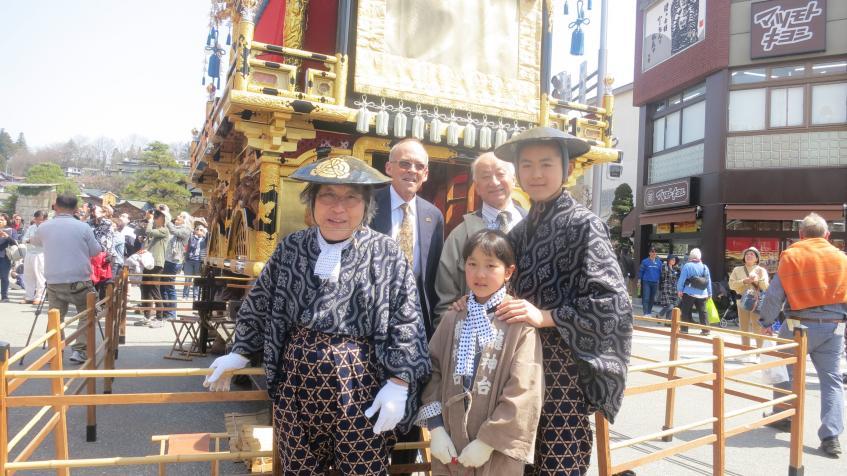
Bill Condee, Reflections
I had known about the relationship between Ohio and Chubu Universities since I arrived in Athens in 1986. I cherished the cherry trees and heard great things about Chubu. Until I started research on Asian puppetry, supported by the then-robust Southeast Asian Studies Program, I felt I had little to contribute as a visiting professor,. My focus was on Bali, but I was also able to study in Java, Vietnam, Burma, and Cambodia, culminating in a Fulbright position in Malaysia.
I knew, of course, about Japanese Bunraku, the great cultural heritage of life-size puppets controlled by multiple manipulators. This form, however, has been well-researched, and there was no link to Chubu University or its region. Then the relationship between our universities was blessed with the first visiting Chubu scholar in the arts, Professor Tingting Zong. Prof. Zong informed me about karakuri ningyo, a form of robotic puppets dating from the seventeenth century. They are prevalent across Japan but are centered in the Chubu region. Almost nothing had been written about this form in English, which opened up a great research opportunity.
I was deeply honored that my proposal was accepted, especially since my visit to Chubu would also mean the first Ohio professor in the arts. President Emeritus Charles Ping, with whom I had become close through my professorship in the Ping Institute for the Teaching of the Humanities, was delighted with the news. He had been instrumental in developing the relationship and had visited Chubu often. His face lit up in a huge, broad smile, which anyone who knew President Ping will remember well: “You will have a grand time, and they will treat you like a prince.”
As always, President Ping was absolutely right. My friends at Chubu rolled out the red carpet in ways I could not imagine. They made us feel honored, comfortable, welcome, and provided introductions across campus. The staff at the International Center, especially Takeshi Okajima, helped us with everything, from the smallest detail to major planning. I had to travel a great deal for my research, and Takeshi was an invaluable resource. I also found a new friend and research partner in Professor Haruka Wazaki, who accompanied me to Shinto festivals that featured the puppets all across the region. Professor Tadashi Shiozawa was also kind and generous, and he toured us around fascinating and unique temples and shrines.
I have written “we” and “us” because my wife and, for a time, son were also in Japan. Everyone at Chubu University was wonderfully gracious and welcoming in helping our family settle in.
One of our happiest memories is the cherry trees, which were in full and glorious bloom. We would walk out of our apartment onto a beautiful bed of petals, and the breezes would create shimmering patterns of pink as the petals descended through the sunlight. We also appreciated getting to know the students, Americans studying at Chubu, Japanese preparing to go to Ohio, and many others who just wanted to chat. My wife and I were reminded that they are the cement that ties our communities together.

